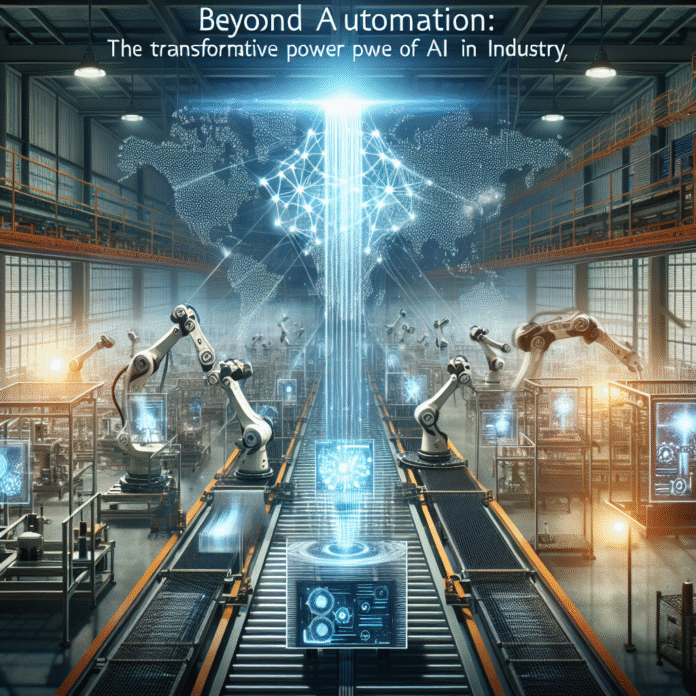Beyond Automation: The Transformative Power of AI in Industry
Introduction
The landscape of industry is undergoing a seismic shift. While automation has long been a staple of operational efficiency, Artificial Intelligence (AI) is now steering a new wave of transformation. This article will explore the expansive impact of AI beyond mere automation, illustrating how it’s reshaping industries by enhancing decision-making, driving innovation, and creating new business models.
The Evolution of Automation
Automation has traditionally focused on streamlining repetitive tasks, increasing productivity, and minimizing human error. However, the advent of AI has propelled automation into a realm of cognitive capabilities—allowing machines not just to follow pre-set rules, but to learn, adapt, and evolve.
Enhancing Decision-Making
AI algorithms analyze vast amounts of data at unprecedented speeds, uncovering patterns and insights that would be impossible for humans to discern alone. In industries such as healthcare and finance, AI-driven analytics provide professionals with enhanced decision-making capabilities. For instance, AI tools can predict patient outcomes, detect fraud, and guide investment strategies, leading to more informed strategic choices.
Driving Innovation
AI is not just a tool for efficiency; it is also a catalyst for innovation. Companies are leveraging machine learning and natural language processing to develop new products and services. For example, in the manufacturing sector, predictive maintenance powered by AI helps anticipate equipment failures, significantly reducing downtime and costs. Similarly, AI-driven research in pharmaceuticals accelerates drug discovery processes, reducing the time it takes to bring new medications to market.
Creating New Business Models
AI enables businesses to shift from traditional models to more dynamic and flexible frameworks. The subscription economy is a prime example; companies now offer services on demand, facilitated by AI technology that personalizes customer experiences and optimizes logistics. Furthermore, AI-driven platforms create opportunities for startups to disrupt established markets, fostering a more competitive landscape that benefits consumers.
Conclusion
The transformative power of AI in industry extends far beyond automation. As organizations harness AI’s capabilities, they unlock potential for enhanced decision-making, innovative solutions, and groundbreaking business models. The future will belong to those who embrace the full scope of AI, leveraging its strengths to drive growth and sustainability.
Call to Action
Industries must recognize that the true value of AI lies not just in efficiency but in its ability to transform. By investing in AI technologies and fostering a culture of innovation, organizations can prepare to thrive in a rapidly evolving digital landscape.
More related articles- As industries embrace AI, they are witnessing breakthroughs in productivity, sustainability, and global competitiveness, marking the dawn of an era where technology acts as a true collaborator rather than just a tool.







